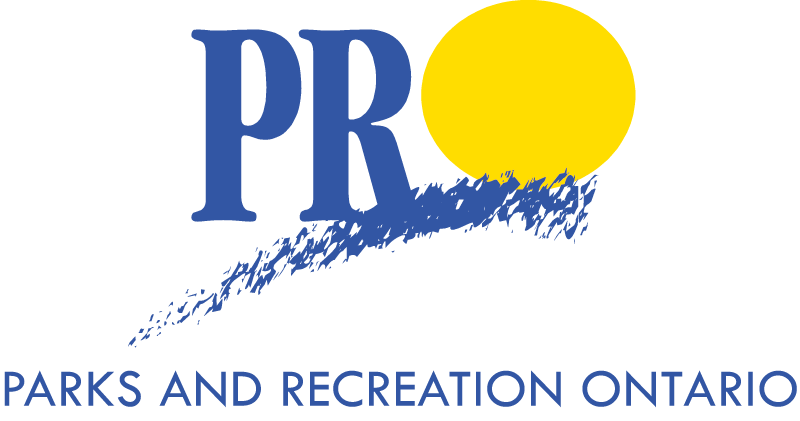Bill 23: More Homes Faster Act
Updated November 18, 2022.
With the intent of increasing the supply of housing in the province, the Ontario government has introduced Bill 23, the More Homes Built Faster Act, 2022. This Bill aims to minimize barriers to housing development by proposing significant changes to several pieces of provincial legislation.
From conservation to zoning to local government fee structures, Bill 23 addresses multiple factors affecting Ontario’s housing supply. Most notably, the Bill removes key oversight provisions and fee structures that ensure the sustainable and equitable development of communities. The impact of this on parks and recreation services will be significant. So too will be the effect on the economic, environmental, and social health of Ontario. The Bill has passed second reading and has been referred to the Standing Committee on Heritage, Infrastructure, and Cultural Policy. You can read PRO's submission to the committee here.
What can you do about it?
- Learn more about this issue using our Bill 23 Toolkit.
- Find your MPP here and use our letter/email template to express your concerns on Bill 23.
- Share this page and our toolkit with your network and encourage them to contribute their thoughts.
The Bill 23 Toolkit includes a high level explainer, a social media asset, and template letters to your political representatives.
Details
As proposed, Bill 23 threatens to have serious economic, environmental, and social implications for the province. PRO will focus its work primarily on the following schedules:
- Schedule 2: Conservation Authorities Act, 1990
- Schedule 3: Development Charges Act, 1997
- Schedule 9: Planning Act, 1990
Below is a preliminary list of key considerations on this Bill as it pertains to parks and recreation services. It is not an exhaustive list of all relevant provisions. In the coming days, PRO will continue to analyze the policy changes contained within the Bill.
Conservation Authorities Act, 1990
Bill 23 and the proposed amendments to the Greenbelt Plan and the Ontario Wetland Evaluation system threaten to prioritize development over environmental and conservation concerns. Changes include:-
- - Setting fees for programs through regulations instead of allowing conservation authorities to establish them and authorizing the Minister to direct an authority not to change fees.
- - Placing restrictions on the content of programs and services, prohibiting those related to reviewing and commenting on a development application.
- - Limiting the ability of conservation authorities to review and comment on a development proposal or application.
- - Provisions that will require a conservation authority to issue a permission or permit where an order has been made by the Minister under the Planning Act.
- - Removing the consideration of pollution mitigation or land conservation and instead focusing on natural hazards such as flooding and erosion.
- - Giving the Minister the authority to make regulations limiting the types of conditions that may be attached to a permission or permit.
- - Streamline a conservation authorities' ability to sell or lease lands they own.
- - Temporarily freeze conservation authority fees for development permits.
Development Charges Act
This piece of legislation moves away from the longstanding idea that growth should pay for growth. It brings significant changes that would alter how local governments are able to raise revenue through development and community benefit charges in order to provide critical services. Changes include:- - Excluding affordable housing, non-profit housing, and inclusionary zoning units from development charges, parkland dedication fees, and community benefit charges.
- - A phased introduction of development charges.
- - Introducing reductions to development charges of up to 25% for rental construction based on the number of bedrooms.
- - Changes to how development charges are structured. This includes removing the costs of certain studies from the set of capital costs that can be included under development charges.
- - Requiring a municipality to spend or allocate 60% of reserve funds annually.
- - Introducing a cap on development charges for some developments.
- - Requiring municipalities to spend at least 60% of development charge reserves on hard service such as water and roads versus soft services such as parks and recreation.
Planning Act, 1990
- The amendments that Bill 23 made to the Planning Act, 1990 undermine the development of healthy, equitable, sustainable communities. Changes include:- - Overriding zoning bylaws to increase “gentle density” without corresponding development or community benefit charges, placing additional burden on municipal services.
- - Restricting third party appeals nd limiting conservation authority appeals to the Ontario Land Tribunal for residential and commercial developments.
- - Reducing parkland dedication requirement for high density residential developments by 50%.
- - Excluding affordable and attainable housing developments from all parkland dedication requirements.
- - Excluding affordable and attainable housing developments from parkland requirements.
- - Reducing the access local governments have to site plan control.
- Cash in lieu for parkland dedication is capped for medium and high-density developments.
- Encumbered land and privately owned publicly accessible spaces meet the requirements for parkland quota.
Implications for Parks and Recreation
Bill 23 strips local governments and conservation authorities of the power they need to provide critical services, implement sustainable environments, and build livable communities.
The changes made to the Development Charges Act and Planning Act will have a significant impact on how municipalities are able to recover the costs associated with growth.
The reduction (or elimination) of development charges, community benefit charges, and parkland dedication quotas for high and medium density areas and affordable and attainable housing threatens parks and recreation at its core.
Local governments rely on fees such as development and community benefit charges to fund municipal services such as parks and recreation. Lacking adequate revenue from these sources, municipalities will be responsible for providing services to a greater number of residents with less dollars per capita to make this happen.
Without a corresponding increase in revenue, this will result in a drop in service provision and fewer amenities, particularly for newly developed communities without a corresponding increase in other revenue streams. This would shift the financial burden of growth from developers to taxpayers, feeding into Ontario’s affordability crisis.
The proposed changes to the Conservation Authorities Act and the Planning Act run counter to the work done by the provincial government in partnership with municipalities and conservation authorities to preserve Ontario’s environment.
In the last two years, the provincial government has worked with Ontario’s conservation authorities as part of the Conservation Authority Working Group to ensure that environmental concerns were well-represented. This Bill threatens to undermine the recommendations put forward by this group.
Limiting the power of conservation authorities to review development applications, freezing fees, and prohibiting the use of pollution mitigation or land conservation as factors in considering prospective developments can only further deepn the effects of climate change Ontarians are seeing at the local level.
In addition, provisions to limit parkland dedication and inhibit flexibility in municipal spending of reserve funds will lead to fewer green spaces in communities. The repercussions of these policies will be felt in terms of Ontario’s physical, environmental, and economic health.
Bill 23 will create deeply divided communities that provide inequitable access to services and amenities.
Developing new fee structures and parkland quotas that are not applied equitably across the board means that some Ontarians will have less access to parks and recreation services—a key factor when measuring quality of life. Taking a deeper look at these provisions, particularly changes that exempt affordable and attainable housing from development and community benefit charges and parkland dedication quotas, it will be Ontarians with fewer resources that will suffer.
What are we doing about it?
PRO will continue to work with cross-sectoral partners to analyze the Bill and release updates to our members.Information gathering: We’re meeting with our members and stakeholders to learn more about how this affects their communities.
Submission to standing committee: We’ve developed a submission for the Standing Committee on Heritage, Infrastructure, and Cultural Policy to discuss the impacts Bill 23 will have on parks and recreation.
Toolkit: We’ve created a toolkit communities can use to advocate for themselves. This toolkit includes template letters to write to your MPP, social media assets, and a high level explainer.

